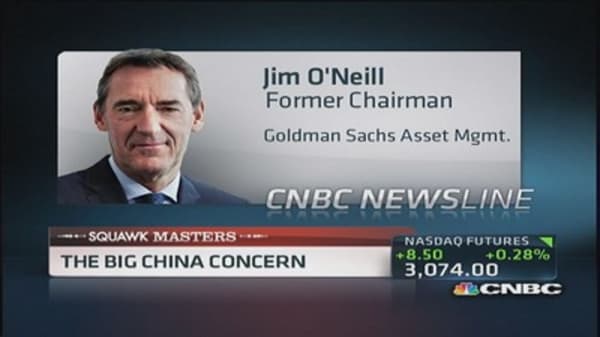Just back from China, renowned economist Jim O'Neill told CNBC on Tuesday that the "incessant focus" on whether the Chinese gross domestic product numbers are accurate and whether GDP there even matters for the rest of the world "seems to be misplaced."
O'Neill—former chairman of Goldman Sachs Asset Management—said he found the Chinese government's growth plan "pretty persuasive," despite predicting the world's second-largest economy is going to "slow even further" while reforms take hold.
(Read more: GDP is the 'worst metric' to gauge China: Stephen Roach)
In a "Squawk Box" interview, he said the Chinese business owners and senior policymakers he met with during his trip are willing to accept a slowdown in the near term to "improve the quality and long-term sustainability of growth."
"Amongst the things they are moving towards is more freedom of their currency and ... much more flexibility of their own interest rate market," explained O'Neill, who coined the term BRICS—referring to the economies of Brazil, Russia, India, China and South Africa (CNBC Explains BRICS).





